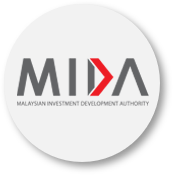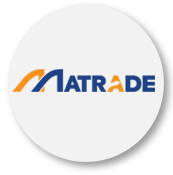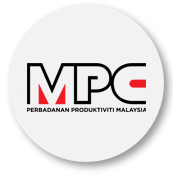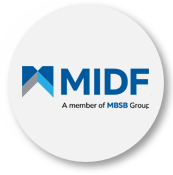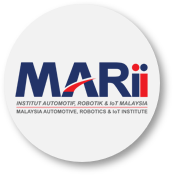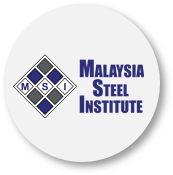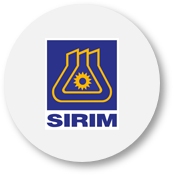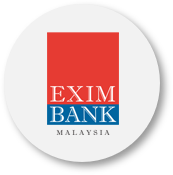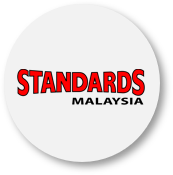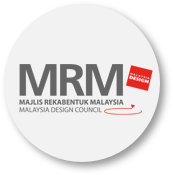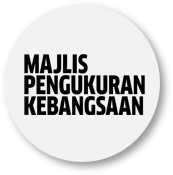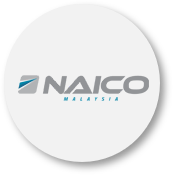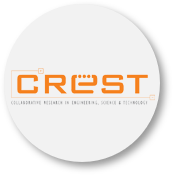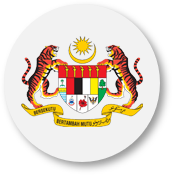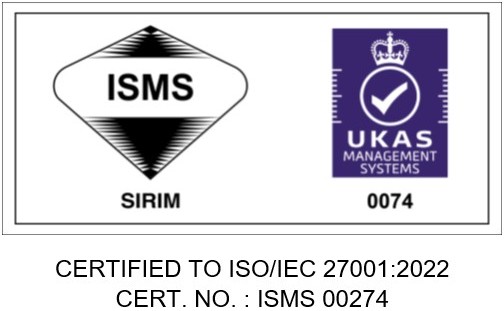Seminar On Understanding The Impact Of Smart Manufacturing In Policy And Regulatory Approaches 25 & 26 September 2018, Pulau Pinang, Malaysia
FAQs on Industry 4.0
What is the difference between Fourth Industrial Revolution and Industry 4.0?
-
The Fourth Industrial Revolution is an overarching industrial transformation that covers every aspect of industries and economic activities including every aspect of living. It is a total transformation of all sectors into new system and/or way of life that will change the way we do businesses. Current technological advances at times also considered as ‘disruptive technologies’ due to the convergence of the physical, digital and biological worlds.
-
Industry 4.0 is referred to as production or manufacturing based industries digitalisation transformation, driven by connected technologies. Industry 4.0 introduces what is referred to as “smart factory” in which cyber physical systems monitor real time physical progress of the factory and are able to make decentralized decisions. Other terminology includes Smart Manufacturing. Some regard Industry 4.0 as a subset of the Fourth Industrial Revolution.
What are the main pillars of Industry 4.0?
-
The nine (9) technology drives/pillars are:
-
Autonomous Robots
-
Big Data Analytics
-
Cloud Computing
-
Internet of Things (IoT)
-
Additive Manufacturing (3D Printing)
-
System Integration
-
Cybersecurity
-
Augmented Reality
-
Simulation.
What are the benefits of moving on to Industry 4.0?
-
Benefits of industries moving in to Industry 4.0 are:
-
Increase in flexibility;
-
Increased productivity, efficiency, quality and reduced time to market;
-
More R&D&D activities; and
-
Development of new skills and talent globally.
What are the major countries that have advanced to Industry 4.0?
-
“Industrie 4.0” is a term coined by the German Government’s strategic initiative to transform its secondary industry (manufacturing) as a leader in advanced manufacturing (or cyber physical system) provider as well as for its domestic manufacturing to be more efficient and cost effective. “Industrie 4.0” is a part of the overall High Tech Action Plan 2020 of Germany.
-
Different countries are using different terms to describe their national strategy in terms of Industry 4.0. Among other terms used include:
-
“Smart Manufacturing” in the United States;
-
“Made in China 2025” for China;
-
“Manufacturing Innovation 3.0” (South Korea);
-
“Industrial Value Chain Initiative” Japan; and
-
“Smart Nation Programme” (Singapore).
What are the Government measures to promote Industry 4.0 adoption in Malaysia?
-
A national policy/framework on Industry 4.0 is currently being formulated by the Government. In May 2017, the Cabinet tasked MITI, MOSTI and MOHE to lead this initiative. A High Level Task Force (HLTF) led by MITI with members from relevant Ministries and Agencies has been established since March 2017 to spearhead development of whole of Government strategy for Industry 4.0 with strong stakeholders’ feedback including from the industry.
-
The Industry 4.0 HLTF has five (5) Technical Working Groups (TWGs):
-
Digital Infrastructure and Eco-system led by KKMM;
-
Funding and Incentives led by MOF;
-
Talent and Human Capital led by MOHR and MOHE;
-
Technology and Standards led by MOSTI; and
-
SMEs led by SME Corp.
-
The TWGs are to identify challenges, analyse existing gaps and propose action to be taken accordingly. Recommendations will be included in the overall National Policy on Industry 4.0.
-
MITI and its agencies in collaboration with relevant Ministries and Agencies are also undertaking various outreach programmes to increase public/industry/academia/training institute’s awareness on Industry 4.0. Two (2) major outreach programmes were done nationally on 2 May 2017 and 15 June 2017. More outreach programmes are in the planning stage including at the state and regional levels.
-
The Government is also seeking feedback directly from stakeholders through various forms including one-to-one engagement sessions as well as online feedback through MITI’s website.
What are the focus sectors under the proposed National Policy on Industry 4.0?
-
The current economic plans (IMP3 and RMK11) are still relevant and remain as Malaysia’s mid-term policy guide until 2020. RMK11(2016-2020) has identified the three (3) catalytic (E&E, M&E and Chemical) plus two (2) new growth (Aerospace and Medical Devices) sectors as game changers for the manufacturing sector. These sectors will continue as the focus sector together with other sectors such as automotive, petrochemicals, textiles and services.
-
The overall National Policy is still being developed as such the list of focus sectors will be finalized later.
What is the vision for the Industry 4.0 National Policy?
- The targets and vision is being deliberated in detail with stakeholders and industry before announcement on the policy is made.
Will there be any allocation provided by the Government to promote the adoption of Industry 4.0?
-
Targeted incentives and funding to promote adoption of Industry 4.0 will be deliberated in detail under the TWG for Incentives and Funding.
-
As the benefits of Industry 4.0 adoption impacts directly to companies, the private sector/industry on their own accord should invest in digitalization efforts. Industry efforts already exist but more concerted efforts from industry leaders need to be seen.
What is the current status of our industry?
-
Malaysia’s manufacturing sector as a whole varies in terms of where they are currently ranging between 2.0 (mass production) and 3.0 (automation). However, there are industry leads already in the process of moving towards Industry 4.0 or becoming Industry 4.0 compliant on their own.
-
The E&E, aerospace and the automotive sectors are more advanced in terms of Industry 4.0 adoption. The success stories by industry captains will be showcased as Industry 4.0 examples that can be emulated going forward.
What are the major challenges faced by industries in moving towards Industry 4.0 adoption?
-
Major challenges faced by industries in moving towards Industry 4.0 adoption include:
-
Lack of awareness on the concept of Industry 4.0 and its benefits;
-
No clear comprehensive policy and coordination on Industry 4.0 in Malaysia;
-
Infrastructure gaps particularly the digital infrastructure as well as ecosystem gaps;
-
Lack of targeted incentives to incentivize more companies to move to Industry 4.0;
-
Mismatch skillsets and lack of right talent/human capital; and
-
Lack of standards resulting in difficulty of integrating different systems and reliability issue.
-
There is also different challenges faced between MNCs and SMEs particularly where majority (40%) of SMEs are of the view that they do not need the internet based on FMM’s study on its SME members in 2016 done by Monash University.
What are the benefits for a company to adopt Industry 4.0 technologies when cheap/low-skilled labour can be obtained through employing foreign workers?
-
The Government is committed to move away from low-skilled/foreign workers dependency particularly for the manufacturing sector. Adopting new technology to ensure companies be more efficient and productive will be in tandem with global trends.
-
Cheap labour is unsustainable in the long run and prone to human errors thus reducing the quality of products produced. A prime example is China that is moving towards digitalization on a large scale despite the abundance of cheap labour in the country. The adoption of Industry 4.0 in this type of organization will increase efficiency and promote zero-defect outputs.
-
A study by The Boston Consulting Group has stated that rapid adoption of Industry 4.0 could boost labour productivity by as much as 30 percent by 2024.
With the fast changing nature of technology, is adopting Industry 4.0 sustainable?
-
Yes, because every organization needs to constantly reinvent itself and the adoption of Industry 4.0 can be considered as part of the upgrading process.
-
To ensure sustainability in the long run, digital transformation must be done with the aim of solving important business issues faced in the manufacturing process.
-
Global trends show companies that are not confined to the traditional way of doing things and utilize technology to its advantage have a higher chance of remaining relevant and successful in the long run.
As Industry 4.0 utilizes cyber physical systems, are cyber security risk issues properly addressed and what are the steps taken to eliminate cyber-crime?
-
Cyber security is key in achieving a truly digital nation. Hence, one of the technology driver in the nine (9) pillars is Cybersecurity. Our Government through CyberSecurity Malaysia has instituted a broad range of innovation-led cyber security programmes and initiatives to fulfill its mandate accordingly.
-
Malaysia is currently ranked third globally among 193 International Telecom Union members, in terms of the level of national commitment to addressing cyber-security risks. Malaysia is also among the top scorers in the Technical Performance Index of the Global Cybersecurity Index 2017.
Is there a starting point/checklist for companies to adopt Industry 4.0?
-
There is no one size fits all solution in moving towards Industry 4.0 at the firm level as it depends on the aim of each company. Any improvements either incremental or leap frogging towards Industry 4.0 will result in positive improvements at the firm level in terms of productivity and efficiency.
-
Each company must decide what would be its end goal before finding out the technological options available for use. More often companies would need to be convinced or test run solutions before they can run with its full implementation. They first need to be aware of where they are currently and to ensure that it has its value stream map/an overall mapping out of the whole production line from sourcing raw materials to production until products are shipped to the intended customers.
-
There are various platforms showcasing possible solutions including at Penang Skills Development Centre (PSDC) and German Malaysia Institute (GMI) that can be a starting point for companies to see possible technological solutions currently available.
Related : Industry 4.0 Seminar 2017
Last Updated 2018-09-27 15:49:37 by Azuna Hasbullah atau Abd Rahman







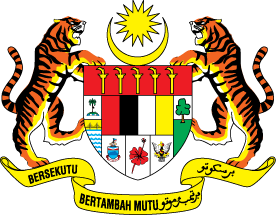





 Home
Home








